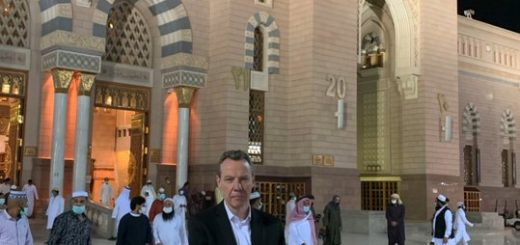Toward new understanding of Islamic banking
The concept of Islamic banking (1)
Today, the world is suffering a major economic crisis which included all banking sectors. It extended to include the other economic sectors which increased the suffering of poor communities which mainly suffered other economic diseases, such as: poverty, high unemployment rates, economic instability, inflation, and others.
There is no doubt these diseases have root causes, of the most important is: not presenting a stable and fair banking and monetary framework. No economic system can maintain vitality and reach its social and economic goals without a rational and just banking system; which can only be achieved in the light of the rulings of Islamic Shari`ah.[1]
Therefore, it was necessary to search for Islamic alternative offered by today’s Islamic banks because they are characterized by caring for the social and moral aspects and contribute in society linkage, based on comprehensive divine system.
The local and regional banking arena has recently witnessed a huge development in presenting the comprehensive Islamic operations whether in the form of establishing new Islamic banks or converting the traditional banks to Islamic banks.
According to statistics recently presented in the conference of Islamic banks that was held in Damascus this year, the manager of the Jordanian Islamic Arab Bank explained that the number of Islamic finance institutions has reached 390 all over the world in 75 countries with assets estimated by 500 to 1000 Billion dollars, and with development rate between 15% to 20% annually.
This development in quantum of Islamic banking was not expected, especially when the first experiment of building an Islamic bank that does not deal in interest began in 1975 with the beginning of Islamic Development Bank in Jeddah and Dubai Islamic Bank.
One of the most important success factors that lead to the spread of Islamic banking was the adherence of these financial institutions to Shari`ah rules in all their transactions where Shari`ah disciplines are the main pillar with which Islamic banks deal with their clients.
Concepts and definitions that dealt with Islamic banking and Islamic finance industry variedbecause of the researchers and economists who are interested in Islamic economy. Therefore, we shall deal with some of these definitions, trying to discover the concept of Islamic banking and suggesting a new concept, perhaps it takes part in increasing peoples’ understanding of Islamic banking.
Dr. Muhammad Al Biltagy defined Islamic banks as financial institutions that present banking and investment services in light of Shari`ah rulings following the financial factor style based on the principle of participation in profit and loss.[2]
We notice that the definition, which Dr. Muhammad Al Biltagy gave, has underlined some matters as general concepts without diving into the concept, when he explained that:
• Islamic banks are perfect financial institutions.
• Islamic banks present the regular known banking services, in addition to investing money and undertaking the investment operations to others.
• Islamic banks depend mainly on Islamic Shari`ah rulings through the Shari`ah committee that watch the transactions of these banks and through the constituent system of the bank based on the basis of Islamic Shari`ah.
• Islamic banks depend on mediation in all transactions through accepting deposits, granting credit, and undertaking the various banking activities in its favor and in favor of others.
• Islamic banks are based on a basic substrate in all their banking transactions based on the principle of participation in profit and loss.
Other people focused on the following definitions:[3]
• They are banking institutions that do not deal in usury and abide by the rulings of Islamic Shari`ah in all their transactions.
• Their law of establishment states that they must abide by the rulings of Islamic Shari`ah and avoid dealing in usury.
• They are financial institutions which collect money and use it in transactions in a way that is in harmony with the Islamic Shari`ah in a way that serves individuals as well as the society.
• They deal in Shari`ah speculation process (dealing in goods and services) in all types of financing through speculation, declining participation, and Murabahah sale (sale with an agreed profit margin). Therefore, they collect money and invest it for a fixed share of unknown profit.[4]
Based on the previous, we conclude that the general concepts of Islamic banking, even though they are different in wordings, they mean the same and have some things in common; therefore, let us agree to the following:
• In the beginning, Islamic banks are financial institutions which collect and invest money in a way that is in harmony with the rulings of the Islamic Shari`ah (such as speculation, participation, Murabahah sale (sale with an agreed profit margin), along with other forms).
• All transactions and goals of Islamic banks are in harmony with the disciplines and rules of Islamic Shari`ah.
• Islamic banks depend on lawful money which is exposed to profit and loss.
• Islamic banks depend in their dealings with others, whether individuals, banks, or institutions, on Islamic financing forms that meet all the needs of economic sectors.
• Islamic banks neither use percentage nor interest rate, whereas they take only a fixed share of unknown profit.
Therefore, the researchers suggest that the definition of Islamic banks is the following: “Islamic finance institutions that collect and invest money in the proper way which is in harmony with the rulings of Islamic Shari`ah, where money is exposed to profit and loss. They depend in their transactions on Islamic finance system that meet all the needs of economic sectors in return for a fixed share of unknown profit rate, thereby they are free of the prohibited usury.”
[1] Musawy, Zahiyah and Khadijah Khalidy, “Islamic financing to economic projects: chances and challenge,” Al Bahith Magazine, University of Tlemcen, Algeria, 2006.
[2] www.bltagi.com
[3] Khalaf, Falih Hasan, “Islamic banks,” world of modern books, Jordan, 2006, p.92-93.
[4] Qantaqjy, Samer, “Essential differences between Islamic banks and usurious banks,” Shu`a` publishing house, Syria, p. 15, 2007.
Number of View :1471
















